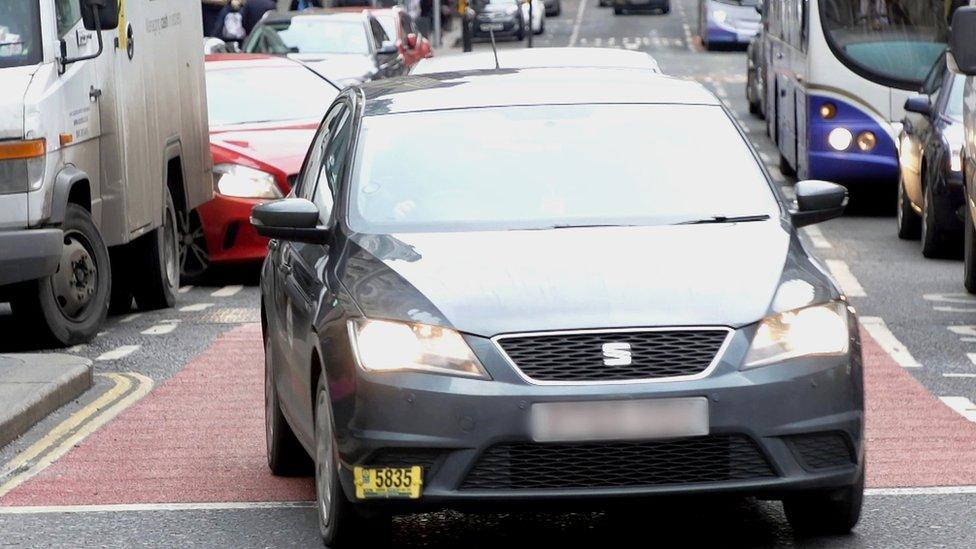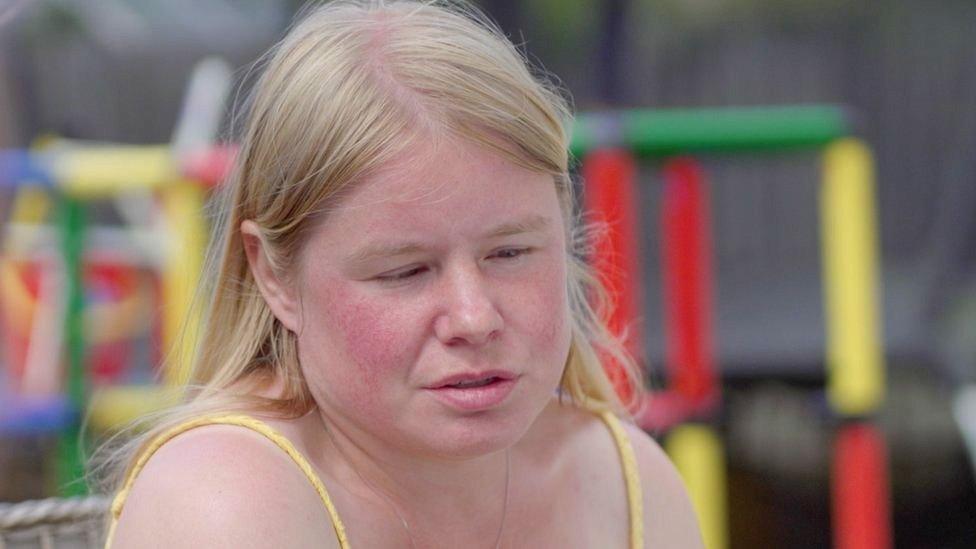Covid rules make taxi travel difficult for disabled people
- Published

Stephen Cook has been refused by taxi drivers because they will not let him sit in the front passenger seat
Coronavirus measures in private hire cabs are making travel more difficult for disabled people.
Taxi drivers have been refusing to take passengers in their front seats to prevent close contact.
But this goes against the 2010 Equality Act which protects the rights of people with disabilities.
Campaigners want clearer guidance from licensing authorities to ensure public health rules are not clashing with equality laws.
Stephen Cook, from Glasgow, has walking difficulties and finds it hard to bend because of problems with his hips.
For that reason he is unable to get into the back of minicabs, and instead has to travel in the front wearing a mask.
He relies on minicabs to get around, but during the pandemic that has proved difficult.

Alfie Wellcoat, from the App Drivers and Couriers Union, says drivers can be from vulnerable groups and also have to protect themselves

Drivers say it is against Covid regulations and regularly refuse to take him, leaving Stephen stranded.
Mr Cook says drivers could potentially be in breach of the 2010 Equality Act, as there is no specific regulation to prevent him travelling in the front.
He told the BBC: "When I ask them if I can travel in the front of the vehicle they will resist and say it's not possible cause of the regulations.
"The last few months have been pretty hellish really, because whenever I use a taxi, I don't know whether I'm going to have to argue with the person or not."
'Reasonable adjustments'
Lynn Welsh is head of legal at the Equality and Human Rights Commission. Does she believe there is a clash between coronavirus and disability rights?
She said: "I'm not sure I would call it a clash, but it has changed the mood slightly. I mean, 'reasonable adjustments' are always required but what is considered reasonable may have shifted during the period of an emergency.
"It is more of a person-by-person issue. The pandemic might change what 'reasonability' means but it doesn't do away with the Equality Act."
Alfie Wellcoat is a driver and represents the App Drivers and Couriers Union.
He said: "It needs to be understood that there is a middle ground, that they can be allowed in provided that it is safe enough with you.
"But obviously some taxi drivers are in high-risk categories so I can fully understand why they would not want to allow someone sitting in the front."

Stephen Cook relies on taxis to get around
Glasgow City Council said it had not issued any guidance on this matter to drivers, but that all drivers licensed by the council were required to follow the guidance produced by the Scottish government, external.
Official guidance states the reasonability element has to be considered in light of the current climate but the duties imposed by the 2010 Equality Act must be met still.
Mr Cook said he was not unsympathetic to the plight of drivers, but emphasised they could not simply hide behind Covid as a reason not to carry disabled passengers in the front of their vehicles.
He said: "I don't think it's been thought through. I don't think the communication to public transport drivers and the like is as clear as it should be - something it missing somewhere and the less able are falling foul of it."
- Published24 August 2020
